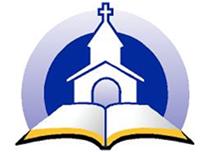Acts 11:19-30
vs. 19: We are a body on the move.
The church (believers) were scattered because of persecution.
vs. 20: We speak and preach the Lord Jesus
Some Jews were even going to the Gentiles to preach
vs. 21: We need the hand of the Lord with us
God grew the number of believers in the church, according to His plan.
vs. 22: We need to send servants to serve
The people of the church were spreading the gospel, not just the preacher and/or deacons.
vs. 23: We need to see and show God’s grace
This was the Christians’ purpose, and also to cling to God.
vs. 24: We need good Christians Biblically speaking
Barnabas was righteous and full of the Holy Spirit and faith.
vs. 25: We need help from other gifted Christians
Barnabas went to Tarsus to find Saul to help him.
vs. 26: We teach believers, making and growing disciples
Barnabas and Saul stayed in Antioch, preaching in the churches.
vs. 27: We prophecy what’s prophesied to each other
Today, prophecy is forth-telling what’s already written in the Bible. In Saul’s day, prophecy was fore-telling new things that God told them.
vs. 28: We have special messages, for special needs, for special times
A man named Agabas foretold that there would be a great famine in all the world, which happened during the time of Claudius Caesar.
vs. 29: We give relief to those who need it, according to our ability
The disciples promised to send relief to the believers who lived in Judaea.
vs. 30: We organize and administrate for the ministry
The disciples sent the relief, by way of Saul and Barnabas, to the elders of the church.
It was an organized ministry, and effective.
